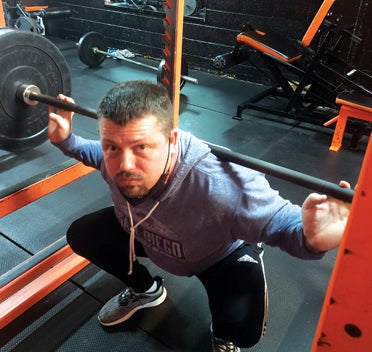Brains and Brawn… Everyone’s right about reps
Published 3:36 pm Friday, February 19, 2021
|
Getting your Trinity Audio player ready...
|
BY CHAD SALYER
There are so many set and rep schemes in the world of weightlifting, one might wonder why lifters have not figured out a certain workout plan that is best for everyone.
A massive lifter in your gym might swear by three sets of five reps with as much weight as possible for maximum gains. Another might tell you they believe five sets of eight reps with less weight will give the best results.
A third might recommend several massive sets of twenty reps with very lightweight to really shape the muscle.
Those are all very different approaches. So, who is right? Well, all of them. That is the thing.
Everyone’s body is a bit different and will respond best to different set and rep strategies.
Also, any plan has a diminished effect over time and no matter what you choose, you must change your plan up often for the best results.
I have switched between all of the above plans and many more to good effect over the years, and I have found there are two things that are even more important than the reps and sets you choose: intensity and accommodation.
Intensity is all about how “hard” a set is to complete.
It is the primary way to know whether a set is creating the highest potential for muscle and strength gain.
The perfect set should be that sweet spot with a nine out of ten level of difficulty meaning you could probably have barely completed one or two more reps.
If at the end of the set you aren’t sweating or breathing hard and you completed the last rep as easily as the first, your intensity is too low.
To get the most out of the workout you need to go heavier or do more reps.
On the other hand, if you could not complete the last rep with good form on your own or, even worse, the last several reps, your intensity is too high.
To keep yourself safe from injury and preserve your ability to keep working out, you need to go lighter or do fewer reps. Be careful not to let your ego pick the weight for you.
Accommodation is your body’s ability to adapt to whatever stress you throw at it.
It is why you get very sore when you first start a workout plan and much less sore later. Your body had gotten “used to” the stress of that workout.
Two things that help with accommodation: periodization and muscle confusion. Periodization is just a fancy way to say do your workout in three-week cycles where you have an easy, medium, and hard week, respectively.
Every time through the cycle, you increase the weight a bit, but you should be a bit stronger so the intensity should stay about the same.
Muscle confusion is best accomplished by frequently changing the types of resistance, for example dumbbells instead of barbells or free weights instead of machines.
Also, you can “modify” the lifts by changing your grip, feet position, and even how you hold the weight. For example, you might do a narrow stance front squat instead of a wide stance back squat.
Too much information is just as bad as too little.
Do not let yourself get too wrapped up in picking the “perfect” workout strategy.
Work with a trainer at your gym to set up a good workout plan for you. If you keep the intensity just right and switch your lifts frequently, you will get the results you want.
The only thing that can stop you is you.






